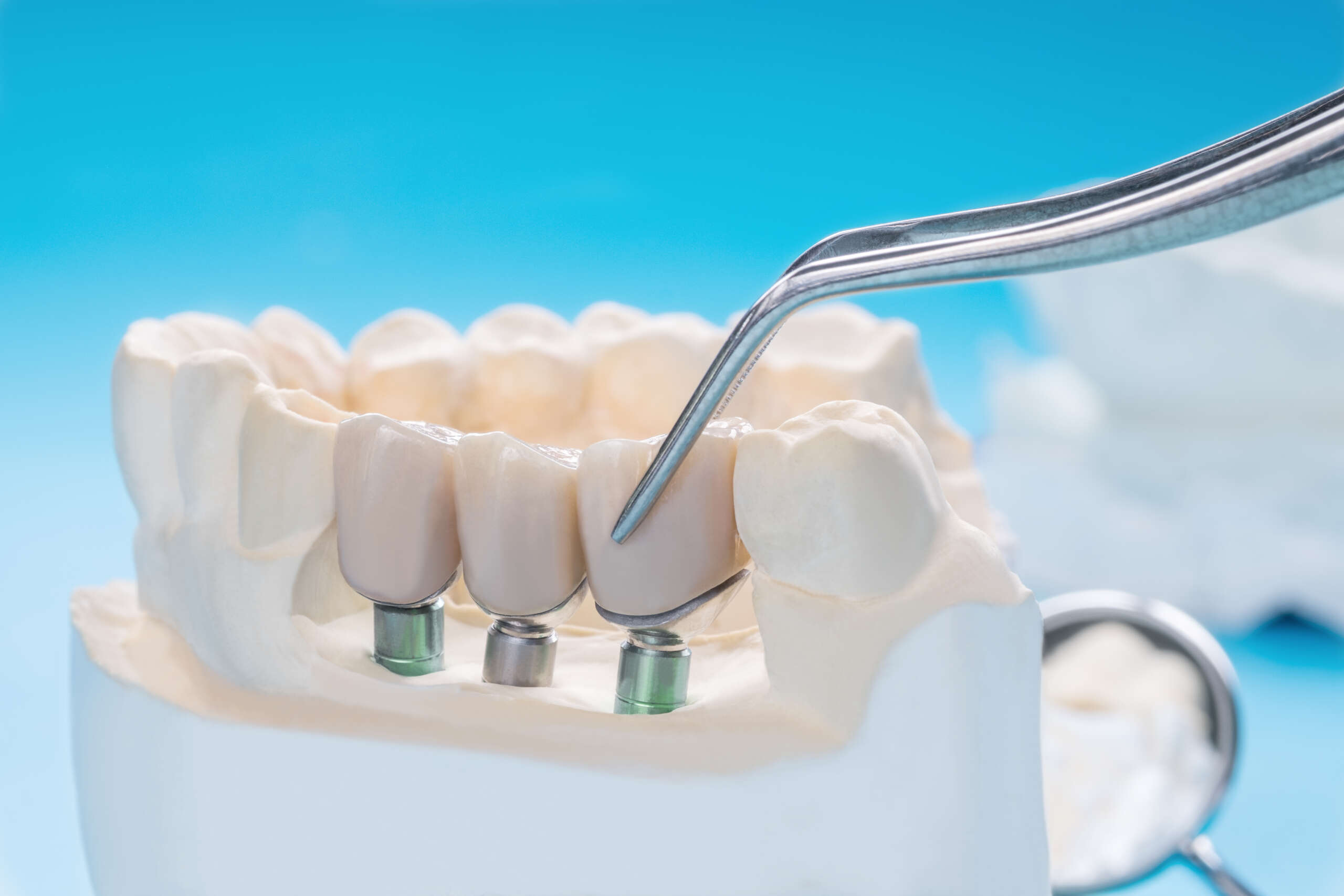
What is a root canal treatment?
The word ‘Root Canal’ is an anatomical term that refers to the small hollow space within the tooth that runs from the tip of the root to the crown’s center (the part of the tooth that is visible above the gum). The nerve network, soft connective tissue, and blood arteries that keep the tooth nourished and healthy fill this natural space inside the tooth.
Some people will use the term “Root Canal” instead of “Root Canal Treatment,” for example, “My dentist says I could require a root canal,” while the dentist has actually been discussing root canal treatment.
Let’s explain in brief:
Each tooth has pulp, which provides the tooth with nutrients and nerves. This pulp attaches to the root. When the pulp becomes infected or damaged, the pulp tissue dies. If you do nothing, your tooth will become infected, and you will be at risk of losing it. The dentist will remove the infected pulp, restructure the canal, seal it for protection, and fit a crown to reinforce your tooth.
In some cases, the inflammation or infection within the root canal is too severe or broad.
In this instance, the tooth is diagnosed as being irreversibly inflamed or infected, and the patient has only two treatment options for removing the source of his or her pain:
- The complete contents of the tooth’s root canal system must be removed, which is known as “Root Canal Treatment.”
- The entire tooth must be removed, which is known as “Extraction.”
Each treatment’s risks and benefits should be evaluated with the dentist to decide the optimal treatment option, which will be different for each person.
The dentist could decide to drain the tooth by leaving it exposed for a few days. Otherwise, a temporary filling will be utilized to safeguard the tooth until the next appointment with the dentist. You may also be given antibiotics to help control the infection. This is to help keep the infection from spreading beyond the tooth.
What causes injury to the pulp nerves?
The two most common causes of pulp nerve injury are trauma and physical irritation. Trauma to a tooth can cause sensitive nerve tissue within the tooth to be damaged. This could be the result of a tooth being heavily struck. The transmission of dental decay to the nerve causes physical irritation. As harmful bacteria get into contact with the nerve, the result is deterioration and illness.
What are the signs and symptoms of nerve injury to the pulp?
Pulp nerve injury manifests itself in a variety of ways. These symptoms may resemble those of other illnesses. As a result, it’s critical to see a dentist figure out what’s wrong. A bloated face, increased sensitivity in your teeth while drinking hot or cold drinks, and pain in your tooth caused by chewing and biting are all signs. It’s worth mentioning that these symptoms can vary in intensity from person to person.
Why do I need root canal treatment?
Because your tooth cannot repair itself, the infection will spread if you do not treat a sick or injured nerve. If left untreated, pus forms a “pus-pocket” termed an abscess at the root tip. An abscess might damage the bone around the teeth. The bone around your tooth will deteriorate, causing your tooth to loosen and eventually fall out. The pain usually worsens.
Aside from root canal therapy, you have another choice. You have the option of having the tooth pulled. This option is less expensive, but it leaves you with a missing tooth. As the adjacent teeth shift into incorrect locations, the result is a poor bite. This may necessitate the use of a bridge or an implant, both of which are likely to be more costly than root canal therapy. It is preferable to select root canal therapy because you will keep your natural teeth.
What Causes Some Teeth to Require Root Canal Therapy?
The internal soft tissue of a tooth can become inflamed or diseased at times. Because this tissue contains numerous nerves, any inflammation or infection can produce discomfort, which can be severe at times, especially if the infection progresses to a full-blown abscess.
The following are the most common causes of inflammation or infection inside a tooth’s root canal:
- Genetics– Our teeth are inherited from our parents. Soft teeth deteriorate more easily than hard teeth, necessitating more upkeep than the ordinary individual. If soft teeth are neglected, decay can develop quickly, necessitating a root canal.
- Decay– The main cause of root canals is decay. If the deterioration reaches the pulp chamber, it can cause sensitivity when drinking hot or cold drinks. Infection or abscess might occur if the decay has advanced too far. If an abscess becomes too large to treat, the only option is to extract the tooth or undergo this treatment.
- Tooth Fracture: This process might also be triggered by tooth fractures. Excessive grinding or clenching of the teeth might result in fractures. Chewing ice or hard meals, for example. Sometimes teeth develop hairline fractures, which allow bacteria to enter the pulp chamber and cause illness. A root canal might be performed and a post placed in the canal to keep the tooth’s integrity.
- Trauma– If a tooth is knocked out with tremendous power, this operation may be required. Accidents in the car, injuries sustained during sporting events, and slips and falls can all result in tooth damage. When a nerve is severely damaged, it can be severed and finally die. This could happen right away or over time.
- Cavity- Within the pulp chambers of the tooth, deep cavities allow pathogenic bacteria to proliferate. The tooth may get inflamed or die as a result of this. It is possible for a tooth to have a cavity without being in pain but still be infected. Small cavities can become deep over time if people do not receive regular dental exams, necessitating costly dental work.
In a nutshell, the treatment…
The procedure of removing the damaged tissue from the tooth’s root canal, cleaning and disinfecting the root canal, and finally filling the void left behind inside the crown and root is referred to as “Root Canal Treatment.” Additional consultations will be required to place a final filling or crown on the tooth.
Always Ask Your Dentist…
If you have any doubts about why your dentist is recommending treatment, you should ask them questions.
Ekdant
Root Canal Treatment in Surat
Office Hours
- Monday:7:00 am – 7:00 pm
- tuesday:7:00 am – 7:00 pm
- wednesday: 8:00 am – 5:00 pm
- thursday: 8:00 am – 4:00 pm
- friday:7:00 am – 7:00 pm
- saturday:Closed
- sunday:Closed
Ask the Expert
Have a brief question you would like answered by one of our experts? Please use the form below:



